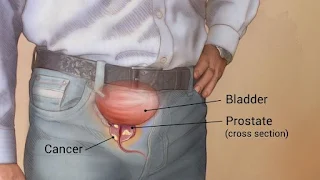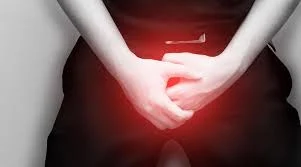Seven Out of 10 Cases Of Cancer In Men Are In The Prostate
After the month celebrated as October Rosa, where the focus has turned to women and the prevention of breast cancer, now it is time to warn about men's health and prostate cancer. The movement known as November Blue is more recent, created in 2003, and still has not as intense programming as the project for the feminine kind. Despite this, attention to the theme should be of equal importance
What is Prostate Cancer?
The prostate is a gland belonging to the male reproductive tract, which is located just below the bladder and in front of the rectum and urethra. Its function is to produce a liquid that makes up the semen, helping to protect and nourish the sperm. That is, it does not participate in erection or even orgasm.
The prostate has numerous cells that multiply, grow and die naturally, giving continuity to the body's cycle. However, when there are changes in this process of cell reproduction through disordered growth, tumors can form.
The vast majority of prostate cancers originate from the glandular cells, which are responsible for producing part of the seminal fluid (semen), which protects and nourishes the spermatozoa.
Prostate cancer is a very common type of cancer in men, especially after 50 years of age. In general, this cancer grows very slowly and often does not produce symptoms in the initial phase, but may manifest itself through signs such as difficulty urinating or dark urine, for example, which is common to other problems such as benign hyperplasia prostate.
More rare types of prostate cancer
The remaining 5% include much rarer types: small cell carcinomas, sarcomas, and lymphomas. When someone mentions prostate cancer, they are referring to adenocarcinoma and not to these rarer histological types.
What Causes Prostate Cancer
There is no specific cause for the development of prostate cancer, but some factors that may increase the risk of the disease are high-fat diet, hormonal dysfunction and the polluted environment and use of fertilizer are under suspicion
Main symptoms
In many cases prostate cancer does not manifest symptoms in the initial phase, but in a later stage the disease can manifest itself with:
-Difficulty in urinating, often with a weak jet or in drops;
-Pain or burning when you urinate;
-Frequent urge to urinate, waking at night to urinate;
-Feeling that the bladder is still full, even after urinating;
-Dark urine due to the presence of blood;
-Pain when ejaculating and darkened semen.
-Blood in the urine
This is one of the scariest signs. Although it may also indicate some type of infection, this is the kind of signal in which one should not be negligent. Known as hematuria, this type of bleeding is also usually related to the kidneys, bladder, or urethra.
-Discomfort and Acute Sweat in the pelvic region
This is one of the clearest and most obvious signs that lead to prostate cancer. It turns out that, here, this type of sweat is not common, even if the individual has a high body temperature or is in situations in which there is an increase in temperature in the area, such as sleeping naked, for example.
-Problems of ejaculation
The clearest symptoms of prostate cancer, when all else is already evident, is when it begins to directly affect a man's sexual performance. Initially, he begins with ejaculation problems, which takes time to leave and, when he does, he goes out of an abnormal amount.
-Blood in semen
Of all, combined with hematuria, is the scariest. Also called hematospermia, it deals with the presence of blood in the sperm. And despite being to a lesser extent compared to urine, it is enough to show that there is something wrong with the prostate. It is not an advanced symptom, but one of the most obvious as to the possibility of a tumor.
-impotence
As is often the case in pictures of erectile dysfunction, ejaculation problems gradually lead to sexual impotence. And here the relationship problems begin in many cases: when neglect that denies the situation as a whole, which does not suspect the possibility and insists it believes to be lack of harmony between the two.
-A strange feeling when urinating
This is the most arbitrary sign of prostate cancer symptoms. By itself, it is just a sensation, a foreboding that does not say directly what it can be. However, when combined with the other signs seen so far, it is good to keep an eye on the possibility.
Major stages of prostate cancer
Once confirmed the existence of prostate cancer is essential to identify the staging of cancer to guide the treatment, being that:
Stage A - Tumor that is not visible or palpable to the touch;
Stage B - Tumor inside the prostate that is palpable to the touch and visible in imaging tests
Stage C - Tumor that reached the seminal vesicles, which are close to the prostate;
Stage D - Tumor that has already reached other organs and metastases already exist, and can affect the urethra, rectum, bladder, for example.
Touch Exam
The rectal examination is the only one to identify prostate cancer. Partly true. The panic test in men is not the only one, but it needs to be done in conjunction with another blood test to identify the PSA (prostate specific antigen) rate. PSA is a substance produced by the cells of the prostate gland. The two exams are complementary and one does not exclude the other
The rectal exam, so feared and spoken in the prostate, lasts only a few seconds. "A maximum of 15 seconds," The simplicity of the test contrasts with the low demand for medical specialty according to data from the Society of Urology. About 44% of men have already gone to the urologist and only 32% have had a prostate exam.
Treatment
After diagnosis and staging of the disease, the physician will discuss the treatment options with the patient. Depending on the stage of the disease and other factors, the main treatment options for people with prostate cancer may include:
-Expectant Conduct.
-Surgery.
-Radiotherapy.
-Cryosurgery.
-Hormone therapy.
-Chemotherapy.
-Vaccines.
-Target Therapy.
These treatments are usually performed separately, although in some cases, they can be combined. can be done with medicines, radiotherapy or surgery, being indicated by a proctologist. Generally, treatment is chosen according to the patient's age, disease severity, associated illnesses and life expectancy because all treatments can bring complications such as urinary incontinence, erectile dysfunction or infertility but in some cases can be reverted.
How to treat advanced prostate cancer
Treatment for advanced prostate cancer depends on whether the disease is localized or whether metastases are formed. In the case of localized advanced prostate cancer, there is usually an association of two types of treatment that may include hormonal remedies and surgery or radiotherapy and surgery, depending on the severity of the disease.
One of the drugs that can be used when the cancer is advanced and does not respond to radiation therapy is Provenge (Sipuleucel-T) which is a type of vaccine that is prepared for each person, individually.
Myths and Truths
-High PSA means presence of cancer. Myth!
PSA is an enzyme that may indicate enlargement of the prostate, but it is not always an accurate indicator of the absence or presence of cancer. Therefore, the touch examination can not be completely replaced by the blood test to detect the level of PSA.
-Increased prostate means cancer. Myth.!
The prostate, located below the bladder and responsible for the production of semen, naturally increases in size from 25 years of age. Its sudden rise may be a sign of prostate cancer and is associated with urinary difficulties and other clinical symptoms such as diabetes
-Prostate cancer is hereditary. Truth.
About 2 to 3% of people who have first-degree relatives with the disease may develop cancer and should have regular checkups from the age of 40. For those without a family registry, the exam is only indicated at age 50. Thereafter, the return should vary from two to five years, depending on the rates of PSA found
-Food influences cancer prevention. Truth.
Tomato is the main food mentioned when speaking of prostate cancer because it is rich in lycopene, an antioxidant also present in other carotenoids, such as carrots. The cells of the human body are subject to a number of oxidative processes that, among other changes, cause damage to the DNA and macromolecules like lipids and proteins, and this can lead to cancer, so antioxidant foods can help prevent disease
-Sedentary lifestyle contributes to the risk of developing cancer. Truth.
Physical exercise is allied to men's health: it decreases the risk of developing coronary and circulatory diseases and also prevents prostate cancer. According to the urologist, regular sex practice also helps minimize the occurrence of early-stage prostate cancer. Obesity is also harmful and can make an eventual surgery more dangerous
-Prostate cancer interferes with sex life. Truth.
Cancer can interfere in different ways in sexual life, as well as aging. Both can change the disposition and erection. The use of certain remedies to lower the level of testosterone and thereby slow the development of the disease leads to a consequent drop in sexual desire. In the case of surgery, it is common to lose ejaculation, since the prostate and the seminal vesicles that produce the ejaculatory fluid are removed. Orgasm remains, according to doctors
-Surgery on the prostate causes impotence. Myth.
Men who had no erectile problems before surgery will continue without problems after performing it. Despite this, the recovery varies for each individual and can take up to three years
Prostate cancer is a disease that afflicts many men around the world. And often, the causes of them are often the lack of information on the part of men, who discover the disease too late. And as much as the problem, it is important to recognize the symptoms and signs that indicate the possibility of prostate cancer.
Fear, ignorance is the greatest of diseases, because it paralyzes the body and the mind.
Change the prejudice for life!
ANA PAULA MENEZES.
-










Beautiful and perfect piece. Very informative and helpful article.
ReplyDeleteThank you very much!
ReplyDeleteBig hug!